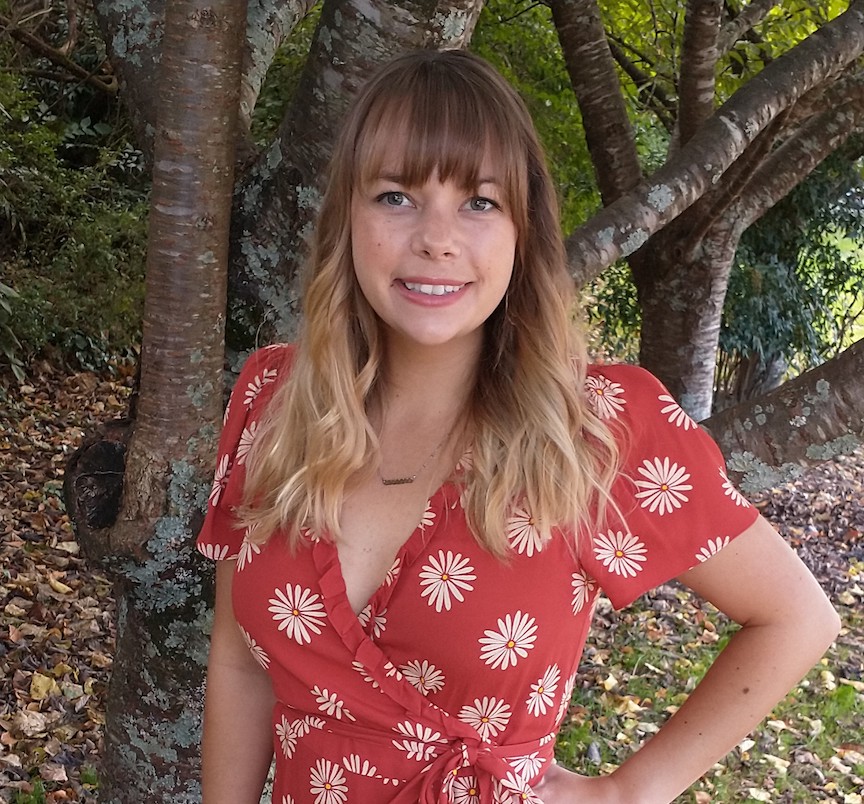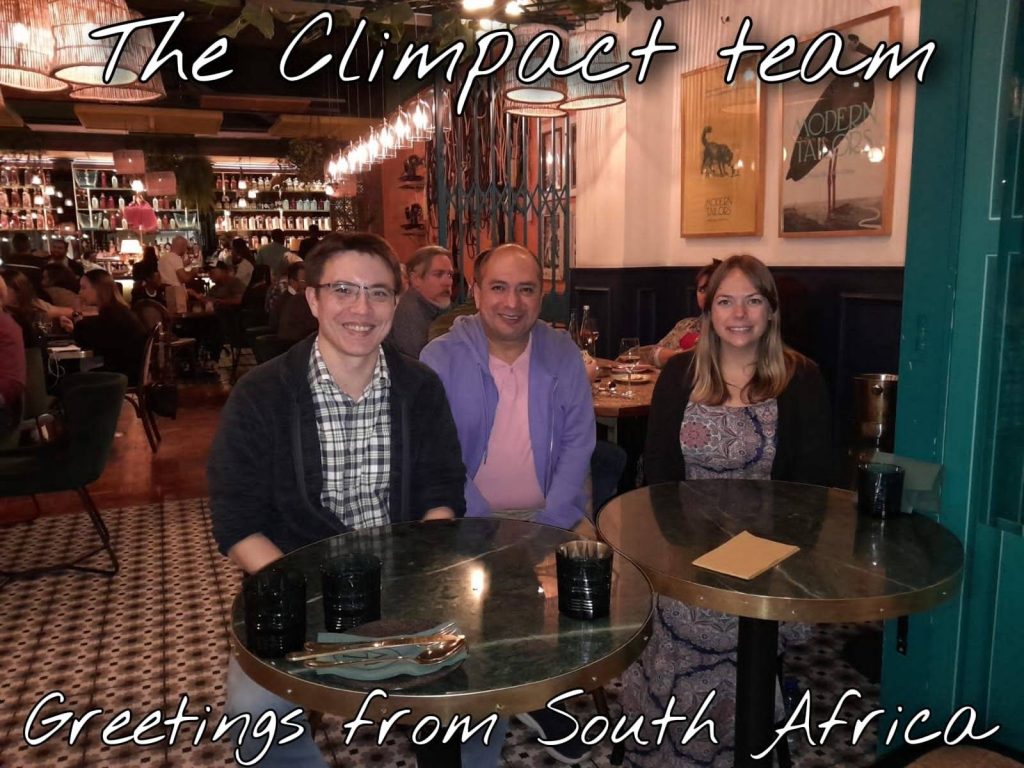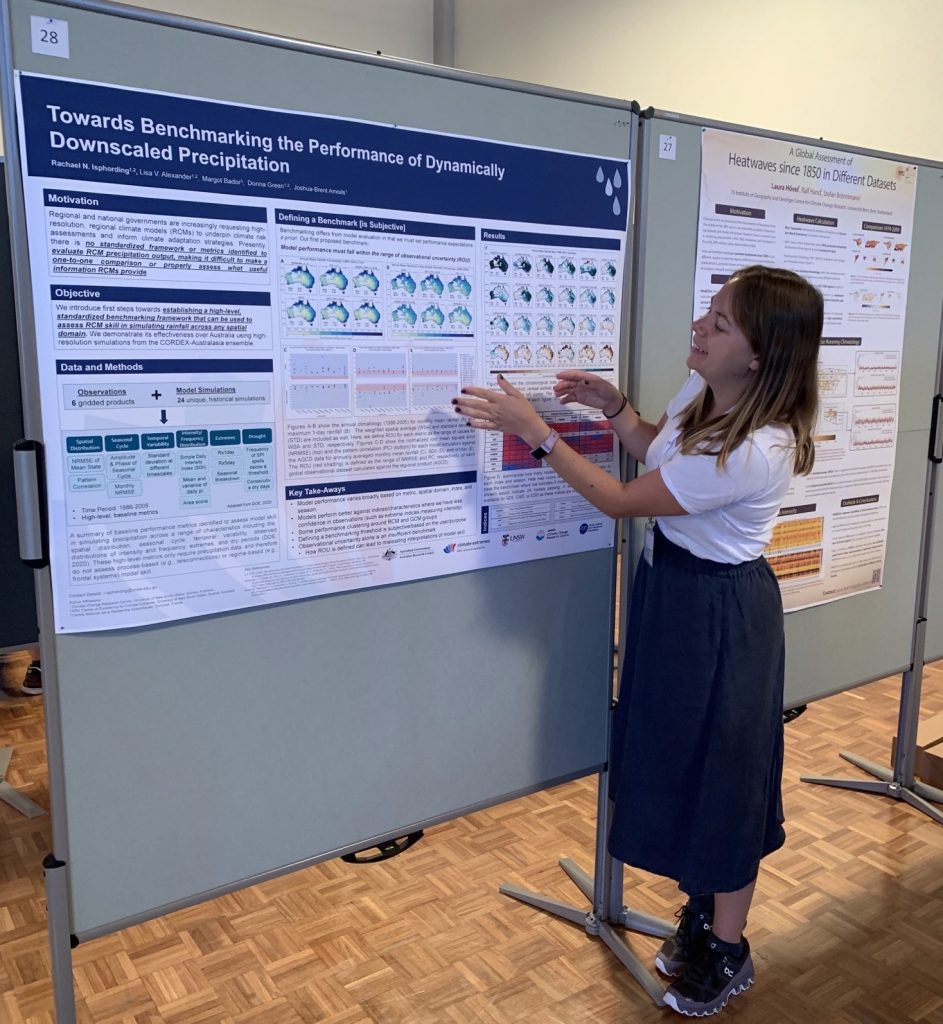By Inna Osmolovsky
Rachael Isphording is a Scientia PhD candidate in the Climate Change Research Center at UNSW (affiliated with the ARC Centre of Excellence for Climate Extremes). She studies climate science and climate adaptation. These fields focus on understanding how and why Earth’s climate has changed in the past and how it could change in the future. The research involves close work with policymakers, stakeholders and communities, helping better prepare for high-impact, catastrophic weather and climate events. Rachael’s research focuses on understanding how well high-resolution, regional climate models simulate rainfall across Australia, on one hand. On the other, she looks into how this knowledge can be leveraged to improve stakeholder decision-making across sectors. With the official announcement of a third, consecutive, year of La Niña in Australia, her findings are helping local communities to anticipate, prepare and adapt to extreme rain events.

Her passion for climate adaptation research stems largely from her childhood experiences, living through Hurricane Ivan (2004) and Hurricane Katrina (2005). Growing up in Alabama, on the coast of the Gulf of Mexico, she witnessed firsthand the detrimental impacts of extreme events and their impact on the communities around her. For her, it’s not just about understanding how weather patterns and extreme events might change in the context of climate change. As a self-described humanitarian, she’s also driven by the “people” side of climate science: what does it mean for us – society – and our overall well-being? What can we do to make things better for future generations?
Her journey into academia started at Embry-Riddle Aeronautical University. There, she first aspired to become a pilot and research meteorologist, flying into hurricanes to collect data. During the completion of her meteorology degree, she took an Environmental Security course which changed the trajectory of her career. The course focused on how climate change affects human security, helping her realize where her passion truly lies.
During the completion of her bachelor’s Rachael interned for the NASA DEVELOP Program. She was partnered with decision-makers in ‘Mobile (Alabama) Area Water and Sewer System’ company. Her role involved helping to predict how the future growth of the city could affect the local drinking water reservoir. This directly affected water quality for the local community, including Rachael’s grandparents. Rachael was empowered by the fact that the results of her research—as an undergraduate student—would inform actual decision-making to help her local communities.
Sadly, not all of Rachael’s experiences in academia were positive. After graduating with her bachelor’s and interning with the U.S. Department of Energy (DOE), Rachael pursued a PhD at a U.S. university. The working environment during that time wasn’t very supportive or healthy. Despite her impressive achievements and dedication to pursuing a career in science, she started to lose confidence in her abilities and struggled with her mental health. Rachael realized how toxic the environment was and bravely left the program with a master’s degree.
What helped her through this difficult time was a group of fellow graduate students; they supported each other through the tough times and continue to support each other to this day. They also were the ones to encourage Rachael during her challenging job search following the completion of her master’s degree. After nearly a year of rejections, she was finally offered an internship with a defense contractor at NASA. This internship helped rebuild Rachael’s confidence in herself and her abilities. The program also helped her to remember her lifelong dreams of becoming a scientist and using her knowledge to help people. After completing this program, Rachael returned to the DOE where she worked for over two years. This was when she applied and was accepted into the Scientia PhD program at UNSW, researching climate change and water security – her dream research.

Nowadays, a typical day in her life—while not traveling abroad for exciting workshops, conferences, and collaborations—includes exploring how well regional climate models simulate rainfall and how rainfall patterns across Australia may change in the future. She works with local stakeholders to understand the challenges they face and determine how climate information can help to inform their decision-making.

Understanding rainfall is surprisingly complex – where will it rain? For how long? How much rain will fall, and when? What are the diurnal rainfall cycles? What will rain patterns look like during extreme droughts? Or extreme rainfall? For her research, Rachael is analyzing over 1 terabyte of observational and climate model data. To manage the analyses of such large quantities of data, Rachael works on the Australian supercomputer.

Rachael says that she is very grateful to have found such a supportive research department and supervisors at UNSW. Her all-female supervisory team is a major source of inspiration and encouragement for her as she continues to grow and learn, professionally and personally. She also takes full advantage of being a PhD student – acknowledging that she is still learning and embraces asking others for help to expand her skillset and expertise.
In her role as a Women in Science and Maths champion, Rachael hopes to inspire other women and young girls to pursue careers in STEM. She hopes that by telling the story of her unique career path—the hardships and successes— she would help others to embark and persevere through their own journey of realizing their dreams. Rachael hopes to inspire young girls to believe that their only limitation is their own ambition.
Follow Rachael on Twitter!

